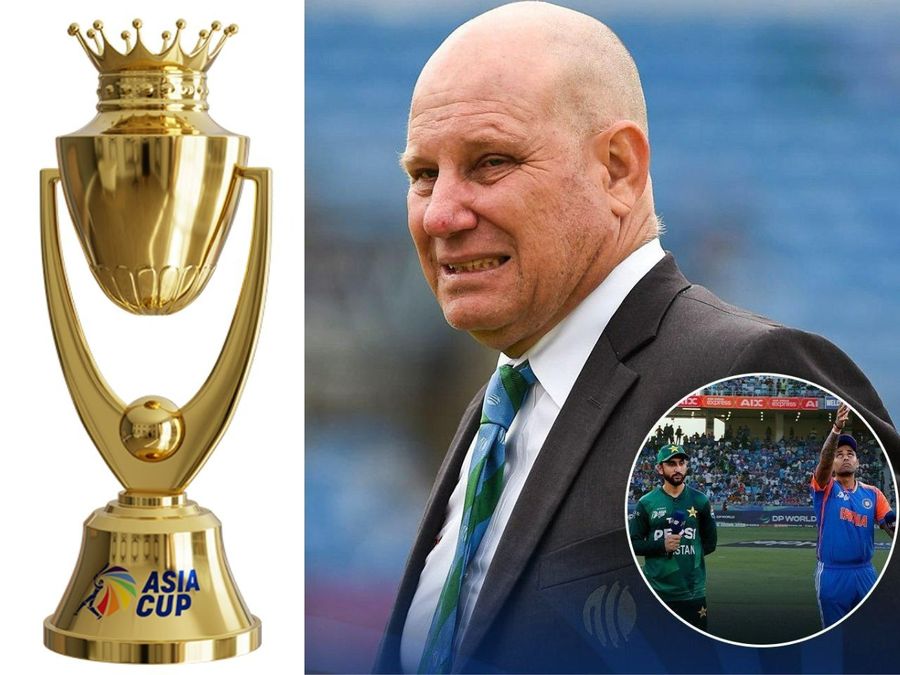Asia Cup Trophy Controversy Sparks Diplomatic Buzz
Asia Cup Trophy celebrations turned into an unexpected controversy after the Indian cricket team reportedly declined to accept the prestigious title from Asian Cricket Council (ACC) President Mohsin Naqvi, who also serves as Pakistan’s Interior Minister. The unusual incident unfolded during the post-match presentation ceremony, casting a diplomatic shadow over what should have been a celebratory moment.
According to event reports, Naqvi was present on the stage and prepared to hand over the trophy following India’s victory. However, the Indian players did not approach him, leading to an awkward delay that lasted nearly 20 minutes. With no movement from the winning side, the ACC President was eventually forced to leave the stage, and the trophy presentation continued in his absence.
Asia Cup Trophy Presentation Turns Into Political Statement
The unusual turn of events immediately drew public and media attention, with many interpreting the move as a subtle diplomatic message amid ongoing India-Pakistan tensions. While the Board of Control for Cricket in India (BCCI) has not issued an official statement, several reports suggest that the team’s decision might have been influenced by political sensitivities surrounding Naqvi’s dual role as a government minister and ACC chief.
The moment was described by onlookers as highly embarrassing for Pakistan, especially as the tournament had been seen as an opportunity to ease tensions and promote sporting spirit. The empty space on the stage and Naqvi’s early exit were widely discussed online, with many calling it one of the most dramatic endings to an Asia Cup in recent years.
Asia Cup Trophy Celebration Overshadowed by Off-Field Tensions
The Asia Cup has long been more than just a cricket tournament it often mirrors the broader political dynamics of the region. This year’s incident underscores how deeply intertwined sports and diplomacy remain, especially between India and Pakistan.
India wins the #AsiaCupFinal 2025 🏆💙
Team India refuses to accept the Trophy from Pakistan Interior Minister & ACC Chairman Mohsin Naqvi.
Someone just picked it up and walked off the ground! 🤯
Another Embarrassing Moment for 🇵🇰
📹 Video Out!#INDvsPAK #Tilak #AsiaCupFinal pic.twitter.com/uZ3t9G2zJ7— Vijay Gautam 🚩 (@Vijay_Gautamm) September 28, 2025
Players and officials on both sides appeared visibly uncomfortable as the situation unfolded. While the Indian team continued with their celebrations, the absence of the ACC President during the trophy presentation became the focal point of post-match discussions. Analysts believe the move was a symbolic stand by the Indian contingent, highlighting that cricket cannot be separated entirely from geopolitical realities.
Asia Cup Trophy Incident Sparks Online Reactions
Social media platforms quickly lit up with reactions from fans, analysts, and political commentators. Many Indian users praised the team’s stance, interpreting it as a refusal to mix politics and sport. Others criticized the move, calling it disrespectful to the tournament’s organizers. Pakistani commentators, meanwhile, described the incident as a “humiliation” and demanded an official explanation from the ACC.

Some reports indicate that this incident may strain future collaborations within the Asian Cricket Council, especially with upcoming tournaments scheduled to be hosted jointly by India and other member nations. It has also reignited debates about whether political leaders should hold positions in sporting bodies. Also Read: India Record: 10 Historic Finals That Defined Cricket’s Fiercest Rivalry Against Pakistan
Conclusion
The 2025 Asia Cup Trophy final was expected to conclude with celebration and sportsmanship, but it instead ended in diplomatic awkwardness and controversy. Mohsin Naqvi’s exit from the stage has become a major talking point, proving once again that cricket in the subcontinent is deeply connected to politics and public sentiment. Whether this incident leads to formal consequences or remains a symbolic moment, it will undoubtedly be remembered as one of the most dramatic endings in Asia Cup history.

